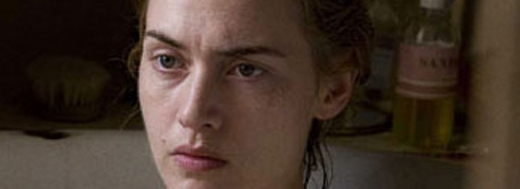
Lisa Chodolenko’s California comedy, The Kids Are All Right, runs a crack express train through a series of predictable plot points in order to delight us with some of the most extraordinary theatre that I’ve ever seen at the movies. She does not allow her film to clutter with questions about what’s going to happen next; she wants to create a stage on which to make us wonder what it feels like to be someone else when the usual things happen. If we’re sophisticated theatregoers, we may be forgiven for wondering just how Julianne Moore or Annette Bening will negotiate a sharp turn ahead, but both actresses do such a good job that it’s really very difficult to imagine them in other roles. Not that I didn’t try: I summoned Ms Moore’s quiet housewife in Far From Heaven, and Ms Bening’s exuberant actress in Being Julia, but all I got were ghosts. I had to forget about Moore and Bening and focus instead on Jules and Nic, the lesbian couple at the center of the movie, with their two children and some unexpected business with the man hitherto referred to as “our sperm donor.”
Jules and Nic are like any married people — different from one another. The fact that they’re both women means nothing, a point that this movie never lets us forget. People don’t come together and settle down because they have common interests, or because they share a common temperament, or for any other characteristic similarity. That’s not how love works. Over time, people rather helplessly grow, sometimes in painfully different directions; sometimes, as here, in an unconscious harmony that seems, in unforeseen crisis, both inexplicable and unlikely. People become middle-aged: tired of themselves, terrified by the collapsed panorama of the future, and desperate for reinvigoration. People make mistakes. In The Kids Are All Right, Jules makes a terrible mistake. It’s such a common human mistake that Ms Chodolenko is able to present it as a comic pratfall, and we laugh when it happens. But we’re not conspirators. The mistake has no importance aside from being a mistake. Thereafter, the movie becomes grave about the consequences of mistakes, and the difficulty of cleaning up after them. The triumph of it all is that we don’t mind this shift from laughter to gravity.
Jules and Nic are not even similarly sympathetic. We don’t side with either one of them when Jules’s mistake comes to light — a triumph for the actors and the director. Sure, we’re going to see Nic as a pain. But we’ll see Jules as a passive and irresponsible person as well. Because the women are so clearly presented as different people, we’re no more sure that they ought to stay together than they are. Atg no point does Ms Chodolenko allow us to root for “the couple,” that invisible third party to every marriage. It’s very clear that Jules’s mistake has destroyed “the couple,” so that if she and Nic do stay together, they’ll have to grow a new one. Which is just as well: “the couple” is what middle-aged married people are usually tired of most of all.
Jules and Nic are also “the parents,” but the permanence of this more material relationship is also opened to question. What does parenthood mean, exactly? Jules is the mother of Laser, a gawky fifteen year-old of whom she says at one point that it would be nice if he were gay, because then he’d be more sensitive. Nic’s daughter, Joni, is a bright but serious girl who is the film’s one unfailingly attractive character. But what about their father? Is a sperm donor a father? Perhaps. But the real question is this: does a sperm donor get a quick pass to join the family that wouldn’t exist without him? The film answers this question with a very firm negative.
Paul, the sperm donor, is of course the man with whom Jules makes her mistake. He’s a nice guy, but the sudden longing for personal wisdom that’s kindled by meeting his children does not mean that Paul can grow up fast enough to assume a place at the family table. He may have good advice for his kids, and they may take it to their advantage, but all the well-meaning in the world can’t compensate for Paul’s violation of the family’s integrity. It’s pretty clear that Paul doesn’t think much of lesbian relationships; he’s not offended by them, but he clearly believes that Jules’s demonstration of a taste for having sex with him means that she is ready to ground herself in a real relationship, with a man. This misconception does not make Paul a bad person, but it renders him a lousy family member, and we know what Joni means when, at the end, she says that she wishes that he had been “better.”
Mark Ruffalo is magnificently credible as a decent man who has committed a gross indecency. Perhaps it would be better to charge him with participating in one; it is always plain as day that Jules has succumbed to his charms without the benefit of overt invitations to do so. Certainly Paul sees himself as fundamentally innocent; he really believes that the four people whose lives he has derailed will accept his heartfelt apology and absolve him. Again, Ms Chodolenko shoots down the nascent ghost of the “couple” that Paul feels to be enveloping him with Jules. We are strongly discouraged from hoping that any relationships will survive simply because they have persisted for a time or, more germanely in a movie theatre, because they appealed to our ideas of what good relationships look like.
Because Ms Moore plays the sinning partner, we wouldn’t be surprised if she were otherwise perfect, the better to highlight her guilt. But Jules is actually something of an idiot. Whether or not there is justice to her complaint that Nic thwarted her career (whatever that might have been) because she wanted Jules to stay at home with the children, Jules is certainly a woman who has become unfamiliar with the kind of rigorous thinking that makes Nic a successfully obstetrician. Jules knows how to cajole approval out of Nic, but this doesn’t mean that she actually deserves it. She buys a truck for her new landscaping business (complete with handsomely signed doors) before she has any actual clients, and she fires a steady worker because she has embarrassed herself in front of him. Jules is also something of a slob, and like slobs generally, unaware of her personal carelessness. Nic tut tuts, plucking hair from their bathtub drain. It never seems to cross Jules’s mind to make sure that Nic won’t find her hair in places where it doesn’t belong.
Annette Bening fights very hard for Nic, just as Nic would fight hard for anything that she really believed in, and that’s what seals the success of Ms Bening’s amazing performance. We are always aware of Nic’s packeted consciousness: when she’s not entirely interested in what people are talking about, she tries, unsuccessfully, to hide her ennui; but when she is interested in the conversation at hand, she is, scarily, much too interested. Ms Bening gives us a woman whose belief that she doesn’t have to worry too much about what others think of her is an unholy compound of self-righteousness and contempt. Nobody — certainly nobody at home — is, in Nic’s view, entitled to have an opinion about her. And this turns out to be the strength that enables her to save her marriage. She is convinced that the world that she has built with her lover and her children is paramount, and it’s the force of this conviction that keeps Paul beyond the pale. Paul may be momentarily attractive, but that does not make him good or right — not for Nic’s family, anyway.
The scene in which Nic tries to digest what she has just discovered about her lover’s infidelity will have a permanent place in the gallery of great movie scenes. While Ms Chodolenko embalms Nic in a windy roar that blocks out what everyone else is saying at the dinner table, Ms Bening looks this way and that, and you hope that she is not going to stop and stare at you, because that would be a Medea moment. Without looking devastated or “old,” the actress gives us a middle-aged woman who has just suffered a terrible blow and doesn’t know how to respond. Will she expire on the spot, in apoplectic despair? Or will she rage ruinously with the crockery? It is wonderfully, horrifyingly open to question what she will do in this, the film’s one and only moment of unpredictability. Then the bubble bursts, and Nic is clinking glasses in a toast with everyone else. Whatever Nic is going to do about her fresh hell, she is not going to do it in front of Paul.
The full power of the scene will not be visible, however, when it is excerpted, for quite aside from what happens to Nic in this nightmarish minute, or what happens to everyone else as a result, there is the miracle of what happens to us. As I say, the scene transforms us from a laughing audience into a grave one. By taking us deep inside Nic’s furious confusion, Ms Chodolenko not only makes the very idea of comedy seem inappropriate but opens up the larger vistas of tragedy and redemption without making us feel that she has changed the rules. Rueful comedies often collapse into “serious” finales, which we endure with the grudging reluctance of a child being given a dose of something unpleasant. In The Kids Are All Right, Lisa Chodolenko transubstantiates that medicine into theatrical nectar.


















